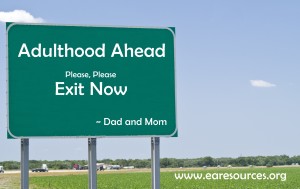By Joely Johnson Mork, freelance writer and contributor at Faith & Leadership, a publication of Duke Divinity School
 “Like many teenagers, Daniel Herron, 16, of Tacoma, Washington, has a busy life. He’s a member of the Sea Scouts, the nautical branch of the Boy Scouts of America. He serves on the Greater Tacoma Community Foundation’s Youth Philanthropy Board, helping to award thousands of dollars to local organizations. He’s active in his high school’s Bible study group.
“Like many teenagers, Daniel Herron, 16, of Tacoma, Washington, has a busy life. He’s a member of the Sea Scouts, the nautical branch of the Boy Scouts of America. He serves on the Greater Tacoma Community Foundation’s Youth Philanthropy Board, helping to award thousands of dollars to local organizations. He’s active in his high school’s Bible study group.
And he’s also the founder and pastor of an online church that has attracted more than 4,500 members. Not a “pretend” or “make-believe” church, but a real — albeit virtual — church where teenagers from across the country and around the world gather to worship, pray and connect with one another.
Known as The Robloxian Christians, or TRC, this nontraditional congregation has important lessons for those who lead traditional churches and church institutions, theologians and youth ministers say.”
Click here for full article — it’s worth the read!
Included are a few reflection questions regarding the nature of an online church, definitions of church, the needs of young people, and the abilities of young people:
- What does The Robloxian Christians tell us about the capacity of young people for imaginative leadership in the church?
- What spiritual and faith formation needs of young people is TRC meeting that “real world” churches are not?
- How do “bricks and mortar” church experiences inform the practices of The Robloxian Christians? Why are “brick and mortar” churches still an important part of Daniel and other members’ lives?
- Is TRC a “real” church? What makes a church “real”? What are the essentials of church?
- Are the children and youth in your church agents of ministry, or objects of ministry? What is the difference?
- How can your church provide a safe space for unchurched people to ask questions and have dialogue?
Let us know what you think!











 You can keep up with this research by checking out the
You can keep up with this research by checking out the  David Becker, of East Longmeadow, Massachusetts, was charged with two counts of rape and one count of indecent assault and battery, according to court documents, after an April 2 incident in which he was accused of digitally penetrating two girls who were sleeping in a bed after a house party. Becker and the alleged victims, who are not being identified, were all seniors.
David Becker, of East Longmeadow, Massachusetts, was charged with two counts of rape and one count of indecent assault and battery, according to court documents, after an April 2 incident in which he was accused of digitally penetrating two girls who were sleeping in a bed after a house party. Becker and the alleged victims, who are not being identified, were all seniors. I hope that our nation still believes in rape. Several high profile rape cases among young adults have received alarmingly light sentences. A Stanford University student named Brock Turner received a six month sentence for what his father described as “twenty minutes of action” when he rapped an unconscious woman.
I hope that our nation still believes in rape. Several high profile rape cases among young adults have received alarmingly light sentences. A Stanford University student named Brock Turner received a six month sentence for what his father described as “twenty minutes of action” when he rapped an unconscious woman. This morning I want to throw in the towel.
This morning I want to throw in the towel. Why does it seem that today’s adolescents are taking longer to grow up? Are millennials selfish, delusional unicorns, or are there other factors affecting their development? This seminar will explore the causes and proposed solutions of delayed development while providing an understanding of emerging adulthood (18-25 age group). We will examine the biblical basis of adulthood, and how parents can support their children during this critical transition. Boyd believes this seminar will help you better understand your children, and encourage you during this new phase of parenting. This seminar is free, but
Why does it seem that today’s adolescents are taking longer to grow up? Are millennials selfish, delusional unicorns, or are there other factors affecting their development? This seminar will explore the causes and proposed solutions of delayed development while providing an understanding of emerging adulthood (18-25 age group). We will examine the biblical basis of adulthood, and how parents can support their children during this critical transition. Boyd believes this seminar will help you better understand your children, and encourage you during this new phase of parenting. This seminar is free, but  At the developmental margins by definition, the in-betweeness of young adults is a huge part of why congregations are so flummoxed about them. Churches have long served children, youth, parents, empty-nesters, and elders. But emerging adults are a special kind of moving target, no longer youth but not quite adults.
At the developmental margins by definition, the in-betweeness of young adults is a huge part of why congregations are so flummoxed about them. Churches have long served children, youth, parents, empty-nesters, and elders. But emerging adults are a special kind of moving target, no longer youth but not quite adults. 1. A survey of 1,184 of them found that during the previous three months, 80 percent had engaged in at least one of the following drunkorexic behaviors. While they do mention research, I would like to know more about this research. The behaviors listed in which 80% are participating could be mild or more severe. For example, the third behavior could refer to cutting back on calories simply because you know you will be drinking. I know many people who do this regularly, but it is not at an unhealthy level.
1. A survey of 1,184 of them found that during the previous three months, 80 percent had engaged in at least one of the following drunkorexic behaviors. While they do mention research, I would like to know more about this research. The behaviors listed in which 80% are participating could be mild or more severe. For example, the third behavior could refer to cutting back on calories simply because you know you will be drinking. I know many people who do this regularly, but it is not at an unhealthy level.